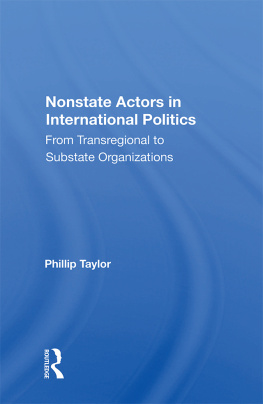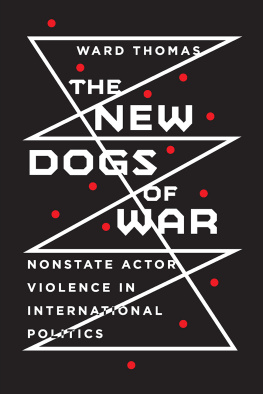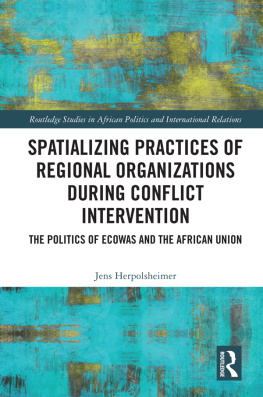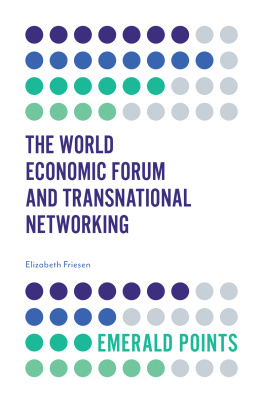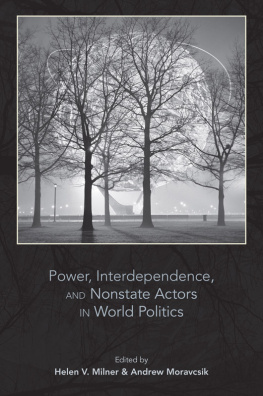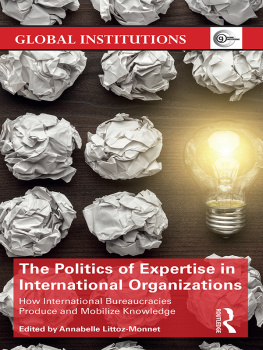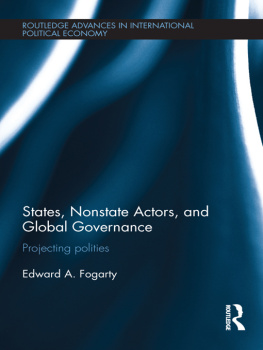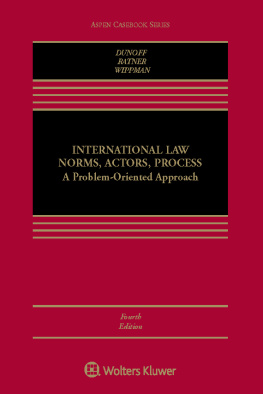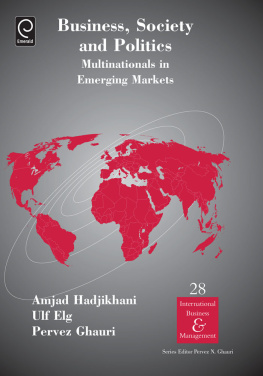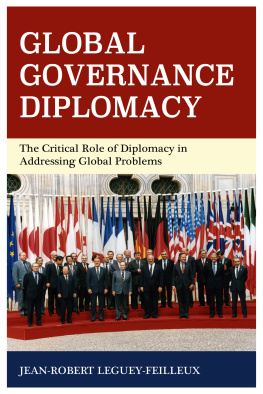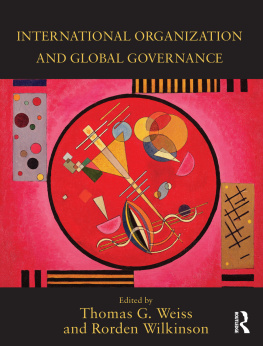Nonstate Actors in International Politics
Also of Interest
International Political Economy Yearbook, Volume 1: The Global Political Economy, edited by W. Ladd Hollist and F. LaMond Tullis
The Politics of East-West Trade, edited by Gordon B. Smith
National Security and Technology Transfer: The Strategic Dimensions of East-West Trade, edited by Gary K. Bertsch and John R. McIntyre
East-West Relations in Europe: Observations and Advice from the Sidelines, 1971-1982, Paul E. Zinner
The European Community in World Affairs: Economic Power and Political Influence, Werner J. Feld
Yearbook of World Affairs 1983, edited by George W. Keeton and Georg Schwarzenberger
Globalism versus Realism: International Relations' Third Debate, edited by Ray Maghroori and Bennett Ramberg
Private Foreign Aid: U.S. Philanthropy in Relief and Development, Landrum R. Bolling, with Craig Smith
World Climate Change: The Role of International Law and Institutions, edited by Ved P. Nanda
U.S. Policy in International Institutions: Defining Reasonable Options in an Unreasonable World, Revised and Updated, edited by Seymour Maxwell Finger and Joseph R. Harbert
U.S. Foreign Policy and the New International Economic Order: Negotiating Global Problems, 1974-1981, Robert K. Olson
U.S. Foreign Policy and Multilateral Development Banks, Jonathan E. Sanford
Superships and Nation-States: The Transnational Politics of the Intergovernmental Maritime Consultative Organization, Harvey B. Silverstein
Available in hardcover and paperback.
Westview Special Studies in International Relations
Nonstate Actors in International Politics: From Transregional to Substate Organizations Phillip Taylor
One of the most notable trends in the study of international relations is the resurgence of interest in international organizations, particularly those outside the United Nations. Regional international governmental organizations, multinational corporations, international labor unions, and transnational ethnic groups have become increasingly salient actors in world politics. OPEC, NATO, EEC, and PLO, for example, are all widely understood acronyms, and even a casual review of the crises in Iran and Afghanistan reveals the pervasive involvement of NATO, the European Community, the Islamic Conference, the International Olympic Committee, and more than one hundred other international governmental and nongovernmental organizations. Although international organizations are not likely to replace nation-states as the primary actors in world politics, their growing involvement in global political and economic issues challenges the assumptions of the traditionalists' state-centric model, as well as those whose interests begin and end with the United Nations.
This book goes beyond the traditional UN-focused studies of nonstate actors to provide students with a comprehensive analytical survey of the many other organizations that help shape today's events. A common framework is used to examine what each nonstate actor does, how it organizes to achieve its ends, and how it makes multilateral/international decisions. The degree of integration in each nonstate actor is evaluated.
Phillip Taylor is associate professor of political science and director of international studies at Old Dominion University. He is the author of When Europe Speaks with One Voice: The External Relations of the European Community (1979) and coeditor of Third World Policies of Industrialized Nations (1982).
First published 1984 by Westview Press, Inc.
Published 2018 by Routledge
52 Vanderbilt Avenue, New York, NY 10017
2 Park Square, Milton Park, Abingdon, Oxon OX14 4RN
Routledge is an imprint of the Taylor & Francis Group, an informa business
Copyright 1984 Taylor & Francis
All rights reserved. No part of this book may be reprinted or reproduced or utilised in any form or by any electronic, mechanical, or other means, now known or hereafter invented, including photocopying and recording, or in any information storage or retrieval system, without permission in writing from the publishers.
Notice:
Product or corporate names may be trademarks or registered trademarks, and are used only for identification and explanation without intent to infringe.
Library of Congress Cataloging in Publication Data
Taylor, Phillip.
Nonstate actors in international politics.
(Westview special studies in international relations)
Bibliography: p.
Includes index.
1. International Agencies. 2. International relations.
I. Title. II. Series.
JX1995.T38 1984 341.2 83-25997
ISBN 13: 978-0-367-01916-7 (hbk)
One of the most notable trends in the academic study of international relations is the resurgence of interest in international organizations, particularly those outside the United Nations. Regional international governmental organizations, multinational corporations, international labor unions, and transnational ethnic groups became increasingly salient actors in world politics in the 1970s. Interest in these nonstate actors has not been confined to the academic community. Decisionmakers in government and business as well as average citizens are more aware of these groups than ever before. OPEC, NATO, the EEC (Common Market), and the PLO are now highly visible and widely understood acronyms. One could not have followed (even casually) the events of the crises in Iran and Afghanistan without having been impressed by the pervasive involvement of the United Nations, NATO, the European Community, the Islamic Conference, the International Olympic Committee, and over one hundred other international governmental and nongovernmental organizations.
No one should infer that international organizations have replaced or will soon replace nation-states as the primary actors in world politics. The United States, the Soviet Union, and Iran were, and are, the central actors in the crises that began in November and December 1979. However, the plethora of nonstate actors and their growing involvement in global political and economic issues challenge the assumptions of the traditionalists' state-centric model and demand greater vision from those whose interests begin and end with the United Nations. Our understanding of what is happening in the world today in part depends on expanding the scope of research into the activities of these many groups and encouraging that research by teaching this area in colleges and universities. This book is designed to fill the need for the latter.
The purpose of this book is to provide a basic text on nonstate actors that exist outside the United Nations and its associated international bodies. Hence, the content differs from the many texts on "international organization" that focus almost exclusively on the United Nations and contain only one or perhaps two chapters on "regionalism" or the European Community alone. The approach of this book differs as well from the few texts on "regional systems" in world politics. Although there are several advantages to the regional approach (common historical, cultural, and geopolitical factors of nation-states that share memberships in several regional bodies), there exists more explanatory power in a comparative study of nonstate actors with similar functional intent or activities. Therefore, this text provides a comparative survey of all economic organizations, security alliances, political organizations, and cultural/ideological groups and treats nongovernment nonstate actors separately. This functional approach has more utility than the regional one in that the latter cannot easily provide examinations of supraregional actors, such as OPEC, NATO, the Islamic Conference, and multinational corporations.


